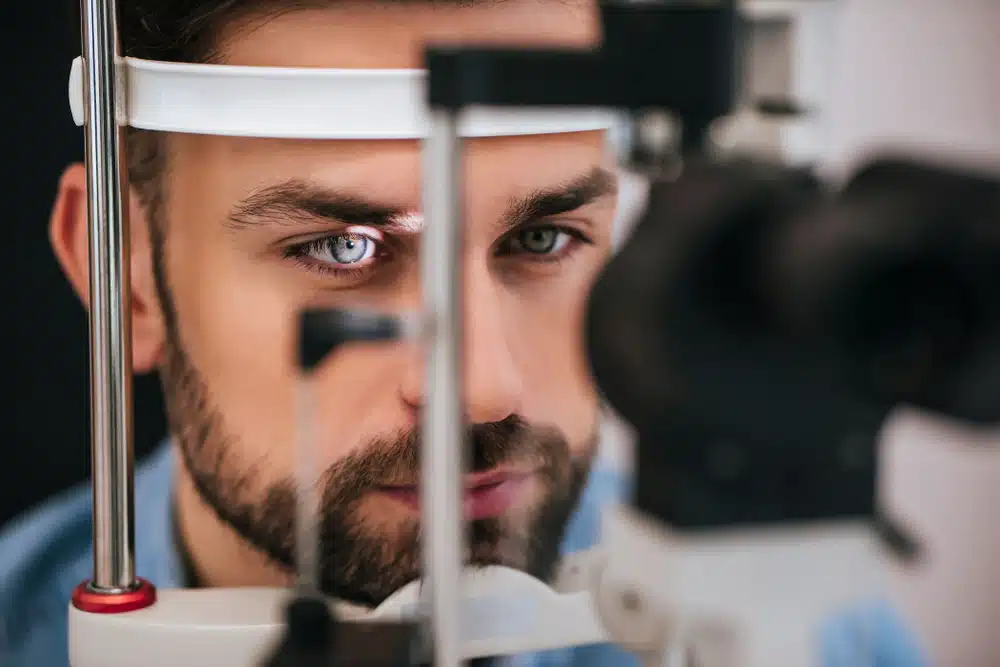Many of us put off getting our eyes checked out by an optometrist until there is an issue. While this might appear to be more convenient, it’s not a proactive thing to do as it puts your long-term vision health at risk. Skipping out on eye exams can even degrade your quality of life – you may be living with a preventable and treatable issue that could be easily taken care of! Regular eye appointments do not only keep your vision sharp but can prevent and detect many serious eye and health issues. Waiting until there is a problem can do more harm than good.
How Often Do I Need to Have my Eyes Checked?
It is important that everyone gets their eyes checked regularly; young children should have their first eye exam at six months, and then again at age three. Once children are five years old, they should have their eyes checked every two years. After age 18, you should have them checked once a year.
What is the Optometrist looking for?
Optometrists look for many things while examining your eyes. These include signs of cataracts, glaucoma, and many other potential problems. It is important that your optometrist is given a chance to perform a thorough checkup, as some eye issues can be severely harmful to your health, potentially leading to even vision loss if overlooked and unaddressed. Here are some of the red flags an optometrist will look for:
Eye Diseases
Your optometrist will run a series of tests looking for signs of different eye diseases. Many diseases, such as glaucoma, have no symptoms in the early stages. Fortunately, early detection prevents severe damage and can even cure minor issues.
Health Problems
Eye doctors can catch certain things that your regular doctor may miss by way of early detection. Many health problems, such as diabetes, have early symptoms that can only be seen by examining the eyes. For example, early symptoms of diabetes can severely affect your eyes by blurring your vision, causing swelling, and even forming small blood vessel leaks in the eye.
Evaluation for Glasses and Contacts
In addition to looking for health issues, optometrists examine your eyes to see if you need corrective lenses. You may have noticed changes in your vision, such as the hobby of reading becoming more difficult. Or, perhaps, you have been suffering from constant headaches. These are clues that you should have your eyes looked at as you may need corrective lenses. Or, you may suffer from conditions such as astigmatism, which can affect the shape of your cornea and result in distance-related vision impairment. Wearing glasses or contacts will help you see and feel better in these scenarios!
Treatment
After your eye checkup, you may need treatment for an issue, or you may require a prescription for lenses (either glasses or contacts). If you need treatment for an eye health issue, ensure that you follow your optometrist’s instructions carefully. This is important because doing so can prevent your eye-related problems from getting worse or, in some cases, even being spread to others (such as a case of pinkeye). If glasses are needed, be sure to take your time when choosing them, as you will probably have them for at least two years.
Benefits of Regular Eye Checkups
If you keep up with annual eye exams and give your optometrist the chance to check for vision-related issues or health risks, you can expect the following benefits:
A Deeper Understanding of Your Eye Health History and Needs
Getting to know one optometrist and forming a lifelong relationship with them means developing mutual trust and understanding. You’ll be able to better trust in their findings, suggestions, and recommendations. On the flip side, if you follow their instructions and help to look after your eyes when away from their clinic, they’ll be able to trust that you’re doing what you’re supposed to do.
In addition, the more an optometrist works with you, the deeper an understanding they’ll have of your vision history, what makes you more comfortable, and whether there are any vision-related risks that could crop up in the future due to genetics.
Optimal Eye Health
Annual eye exams help to protect your long-term vision. You only get one set of eyes! If issues occur as you age, and they almost certainly will as our eyes naturally weaken with time, your optometrist will be able to spot early signs and act quickly to minimize the risk to your vision and health.
Comfort and Peace of Mind
Annual exams also deliver peace of mind in knowing that you and your optometrist are on top of things, year after year, without giving any minor issues time to develop into serious problems. This means feeling more comfortable about your vision and the services the optometrist can offer.
Want to learn more about our optical services or schedule an appointment? We’d be happy to help! Contact the Laurier Optical team today to get started.
